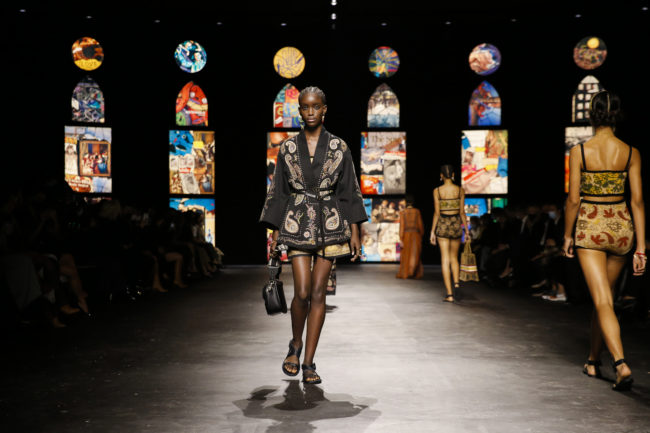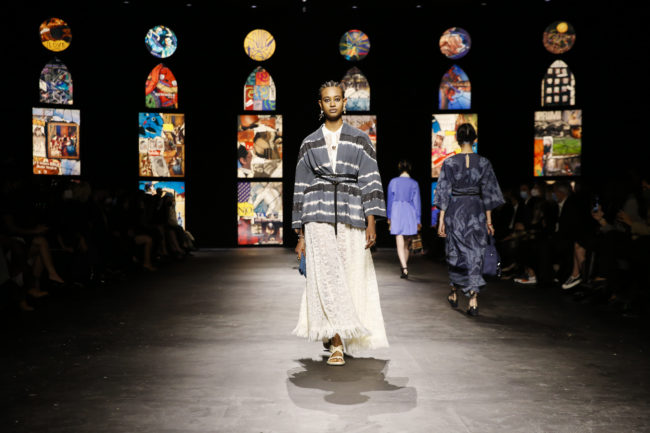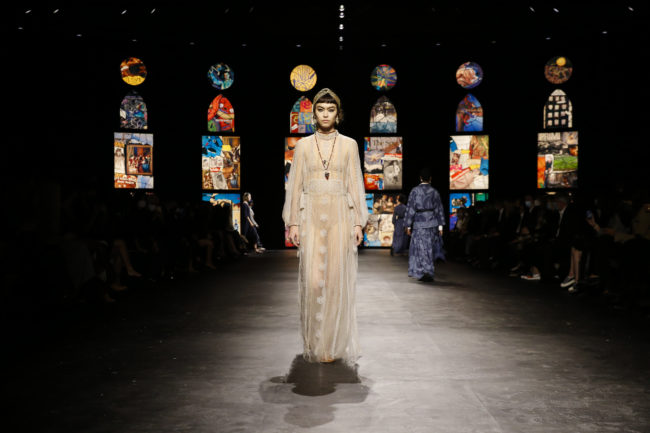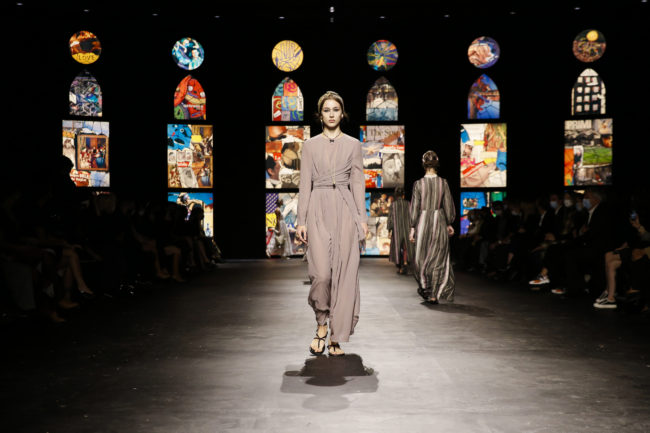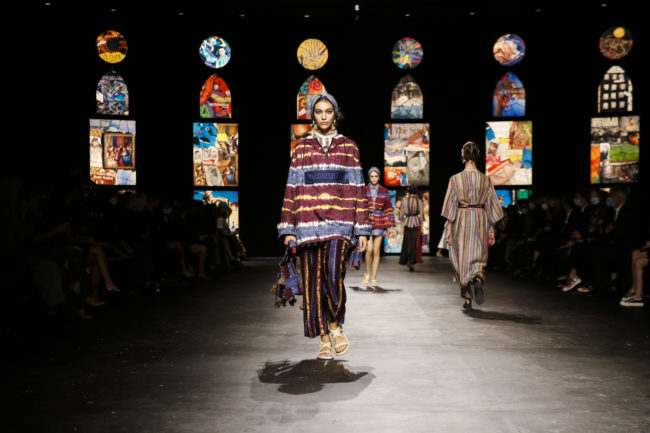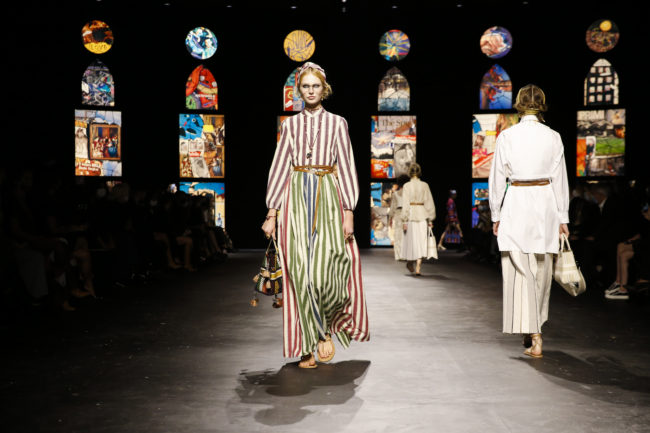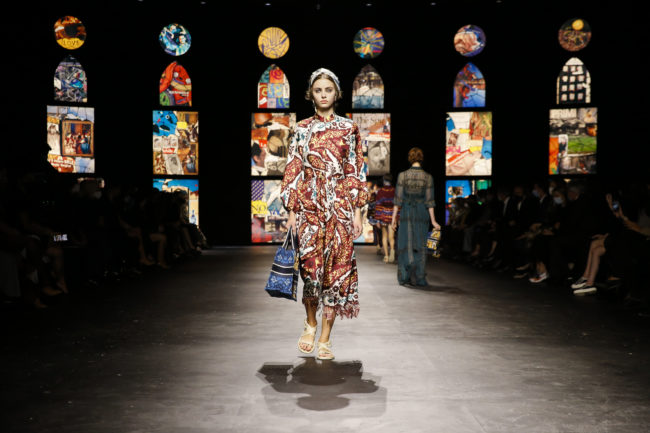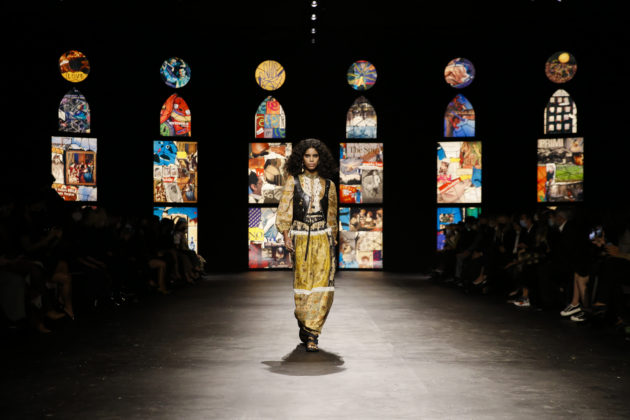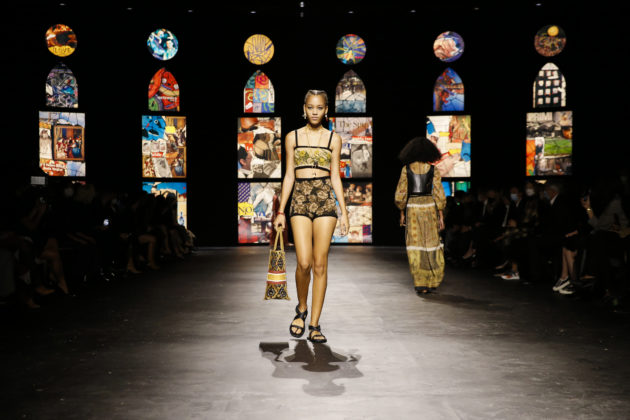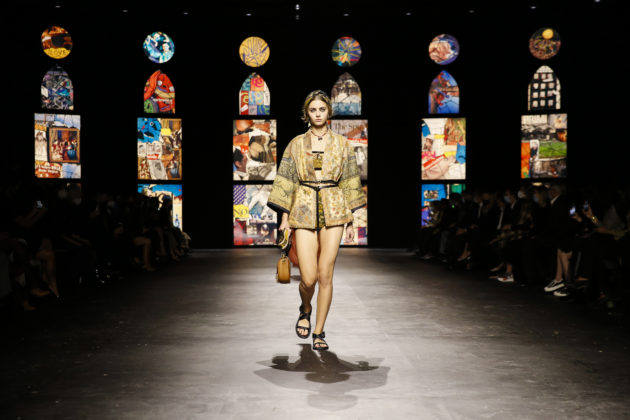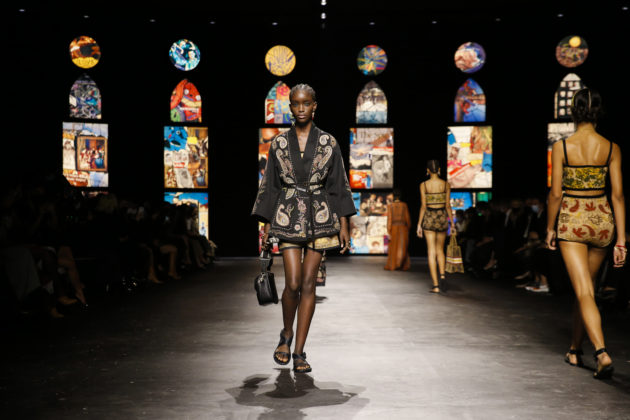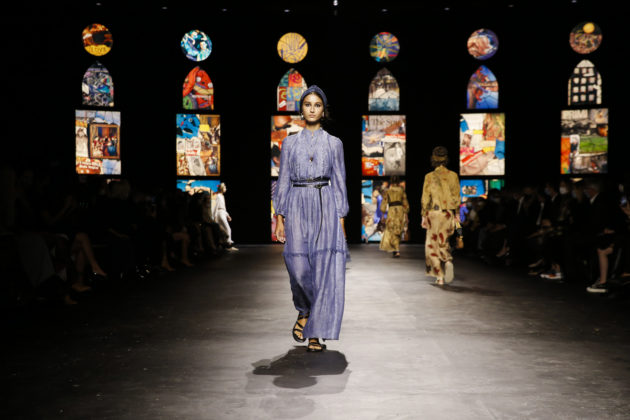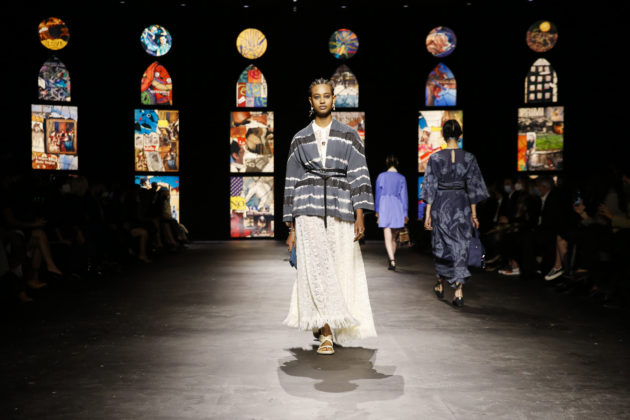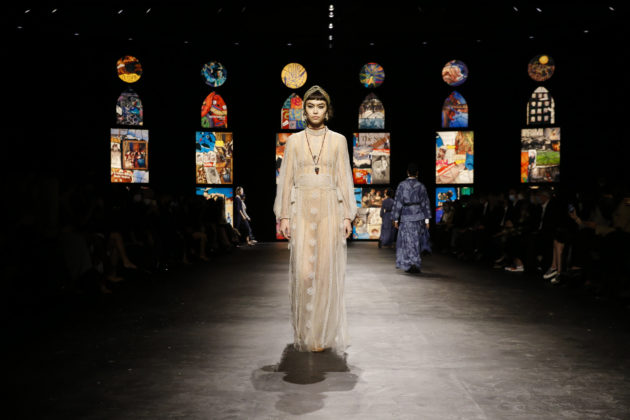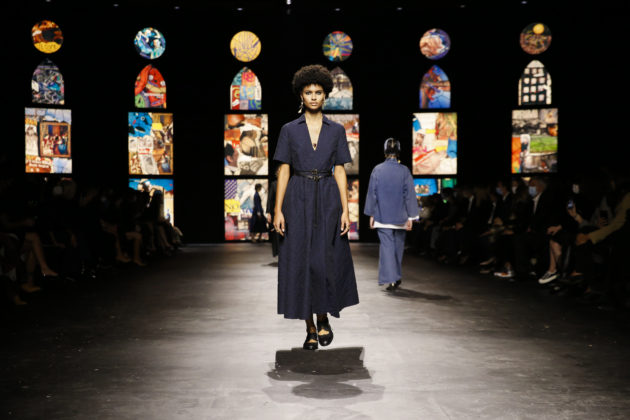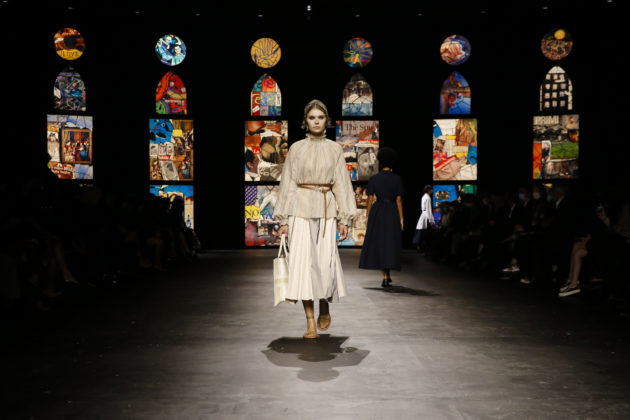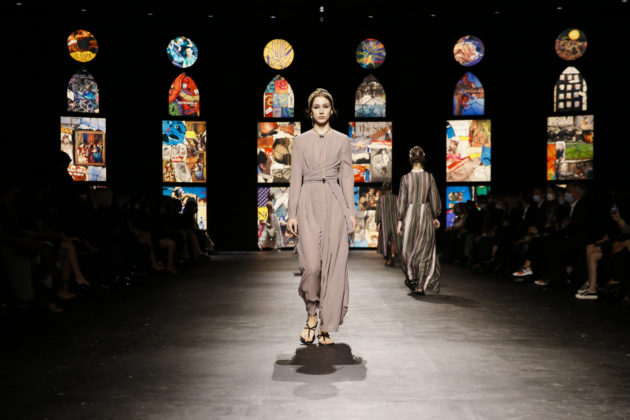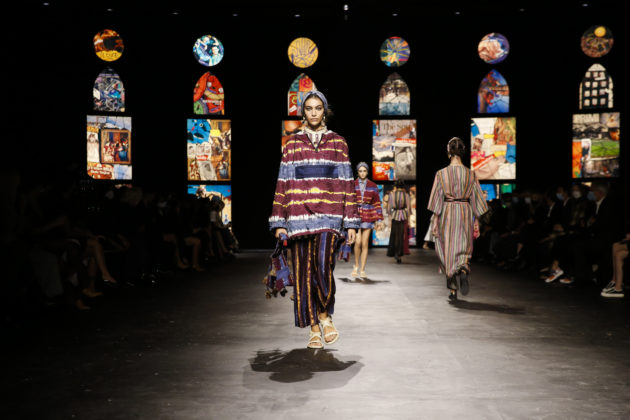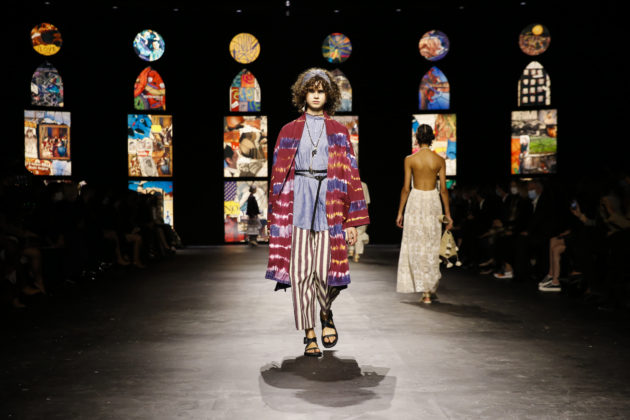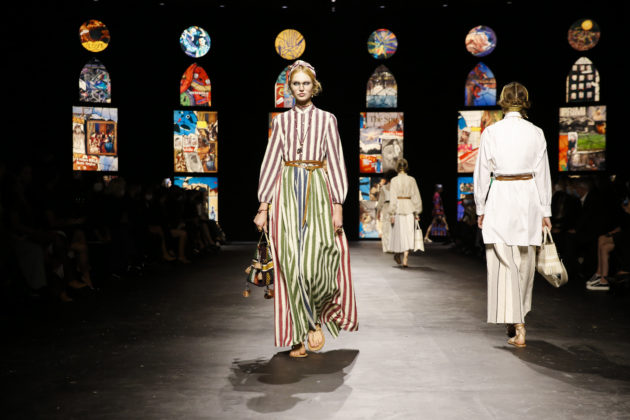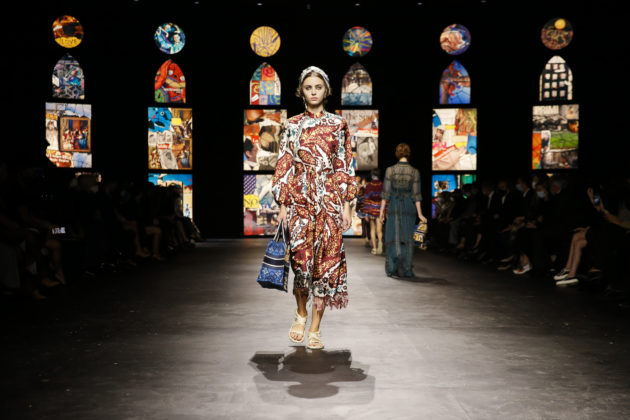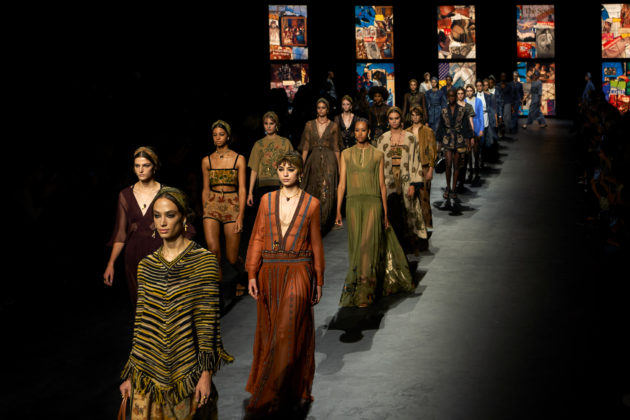For the Dior spring-summer 2021 ready-to-wear show, Maria Grazia Chiuri continues her committed reflection on the origins of fashion, and the meaning of cut and creation, as artistic lexicons in perpetual movement.
Inspired by the work of Lucia Marcucci – an emblematic figure of the Italian avant-garde who designed the show’s scenography – she chose the aesthetics of collage and visual poetry as a new space for expression.
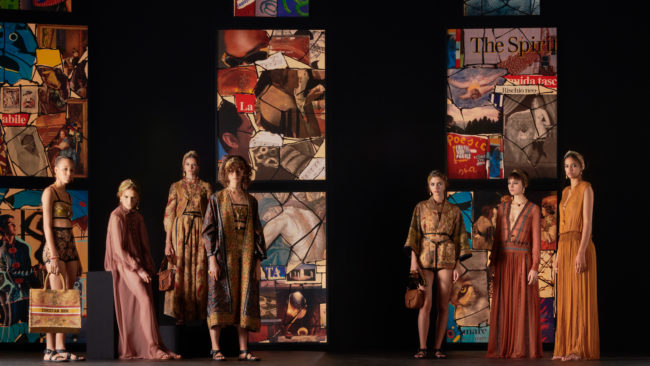
For Maria Grazia Chiuri, each collection consists not only of conceiving a series of pieces designed to accommodate the body of the woman who wears them, but it also entails a reflection on societal transformations, or a reaction to current events, as Christian Dior described it in his autobiography.
The Creative Director of Dior women’s collections is compelled by a dual movement: that of life, and that of fashion. We are traversing a period of crisis that is radically transforming behaviors, habits and rituals. Our spirits have changed, as have our bodily attitudes. The concept of fashion as we know it has been put into question.
“Cutting structures language, but also clothing. It is an intervention into the traditional conceptions of representing and seeing a body or thing, and thereby produces a new sensation”, writes Germano Celant**.
For her spring-summer 2021 ready-to-wear collection, Maria Grazia Chiuri paradoxically transforms the Dior silhouette to respect its heritage: the subversive radicality of its origins.
Thoughts translate into cuts. Shapes are redefined to spark sensations and infuse them with a different way of living. In this spirit, the structure of the Bar jacket transforms in a reinterpretation of selected autumn-winter 1957 Dior silhouettes created for Japan. The addition of laces allows it to be adapted as the wearer wishes. The suit dresses each woman in a unique manner.
Maria Grazia Chiuri draws inspiration from those women who, through their writings, illuminate life and emotion: poets, intellectuals, authors. Members of an idealized academy. In the intimacy of their homes, their places of work, wrapped in infinite layers of color, like Virginia Woolf, or dressed in a simple white shirt, like Susan Sontag.
One of Maria Grazia Chiuri’s essentials, the men’s shirt, is reinvented. By turns, it becomes a tunic or a dress, echoing Dior’s emblematic shirtdress, paired with wide, striped trousers or shorts. It is also worn under ample coats in heathered fabrics.
Patchworks of scarves with paisley and floral motifs, embellished with pieces of lace for a romantic collage effect, accessorize a series of dresses and trousers, opening up infinite horizons for the imagination.
These resolutely fluid fabrics envelop, without hardening, each body in a continuous alchemy of techniques and materials: silk chiffon for long dresses in shades of light, matte blue, deep ocher and pale orange; chiffon embellished with beaded embroidery.
The waist is accentuated with smocking, or dropped, to oscillate freely with the idea of beauty and complexity simultaneously marked by tradition and by the current context that permeates this collection.
In this way, movement finds an echo in the writings of Germano Celant, which resonate today more than ever: “The time has now come for fashion to decipher its latent forces and desires and recognize itself as a free and original discipline**”.
* Nanni Strada, Lezioni. Moda-design e cultura del progetto, 2013.
** Excerpts from the catalogue for the Florence Biennale – Il tempo e la moda – published in 1997. Germano Celant’s essay entitled Tagliare è pensare (To Cut is to Think).
Credits: © Courtesy of Christian Dior Couture





























